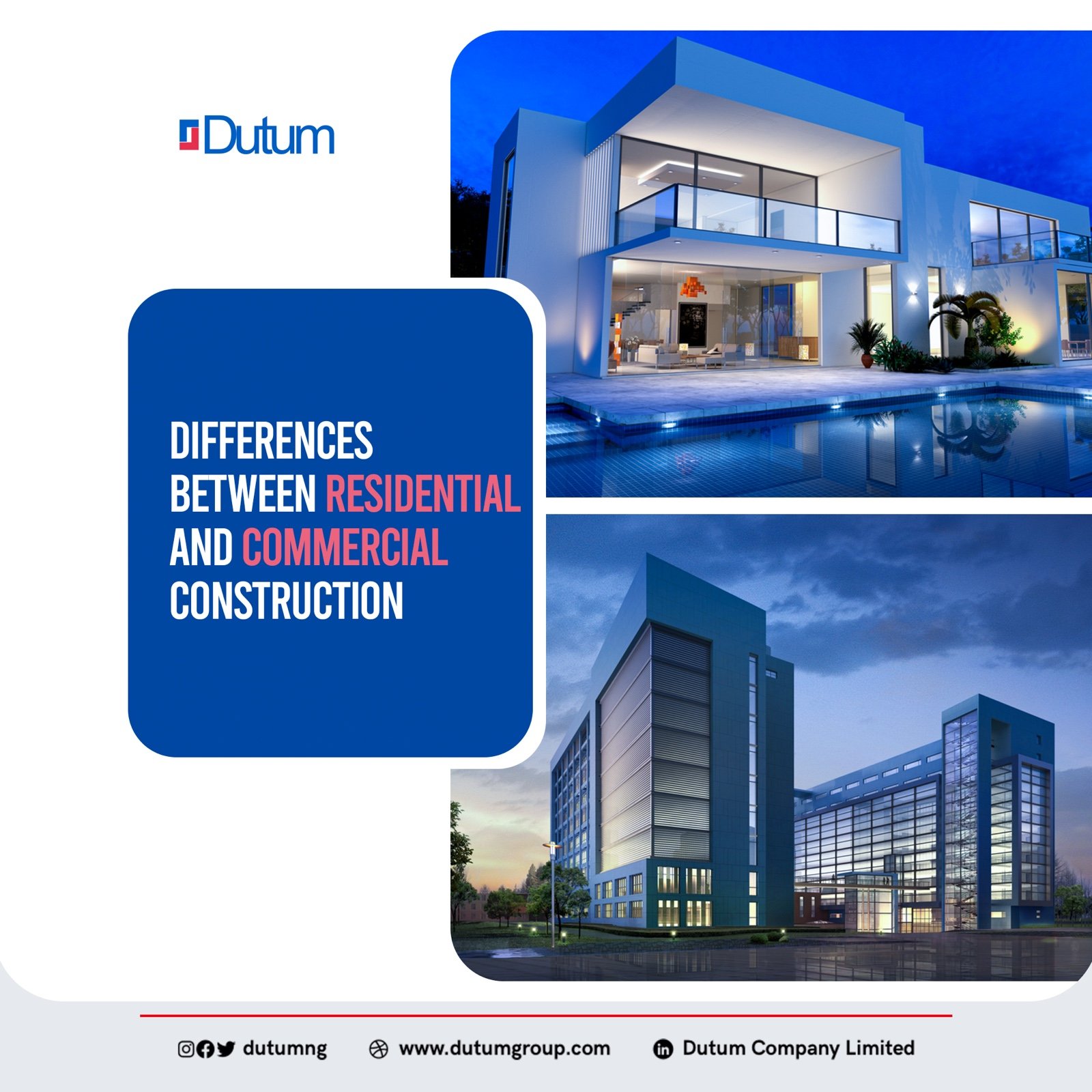It is important to comprehend the basic differences between residential and commercial construction projects, whether for a home or a business establishment. Although both may use similar construction techniques and materials, they differ significantly in various aspects, such as scale, purpose, regulatory requirements, and budget considerations. This blog post will dive into the differences between residential and commercial construction.
Differences Between Residential and Commercial Construction:
Residential and commercial construction differ in several key aspects, including purpose, scale, design requirements, materials, regulations, and timelines. Here are some of the main differences:
- Purpose:
- Residential construction focuses on building homes or multi-family dwellings for individuals or families to live in.
- Commercial construction involves building structures for businesses, such as offices, retail stores, restaurants, hotels, warehouses, and industrial facilities.
- Scale:
- Residential construction typically involves smaller-scale projects, such as single-family homes, townhouses, or apartment buildings.
- Commercial construction projects tend to be larger in scale, involving multi-story buildings or expansive facilities to accommodate various business operations.
- Design Requirements:
- Residential construction often emphasizes comfort, aesthetics, and functionality for living spaces. Designs may vary greatly based on individual preferences and lifestyles.
- Commercial construction prioritizes functionality, efficiency, and branding. Designs must accommodate specific business needs, such as retail layouts, office space configurations, or industrial workflow requirements.
- Materials:
- Residential construction commonly uses materials such as wood, brick, concrete, and standard building materials suitable for homes.
- Commercial construction often involves more durable and specialized materials to withstand heavier use and meet specific safety and regulatory standards. Materials like steel, reinforced concrete, glass facades, and specialized coatings are common.
- Regulations:
- Residential construction is subject to local building codes and zoning regulations governing aspects like safety, occupancy, setbacks, and land use.
- Commercial construction faces similar regulatory requirements but may also involve additional regulations related to accessibility, fire safety, environmental impact, and business-specific standards.
- Timelines:
- Residential construction projects tend to have shorter timelines compared to commercial projects due to their smaller scale and simpler designs.
- Commercial construction projects often require longer timelines due to their complexity, including design development, permitting, specialized installations, and coordination of multiple stakeholders.
- Costs:
- Residential construction costs can vary widely depending on factors like location, size, quality of finishes, and customization.
- Commercial construction costs are typically higher per square foot due to the use of specialized materials, systems, and design features required for commercial use.
- Project Management:
- Residential construction projects may be managed by individual homeowners, small contractors, or custom home builders.
- Commercial construction projects often involve larger development firms, general contractors, architects, engineers, and project managers due to the complexity and scale of the projects.
This table clearly compares residential and commercial construction across various aspects.
| S/N | Aspect | Residential Construction | Commercial Construction |
| 1 | Purpose | Building homes or multi-family dwellings for individuals/families | Building structures for businesses (offices, retail, etc.) |
| 2 | Scale | Smaller-scale projects (single-family homes, townhouses) | Larger-scale projects (multi-story buildings, facilities) |
| 3 | Design Requirements | Emphasizes comfort, aesthetics, and functionality | Emphasizes functionality, efficiency, and branding |
| 4 | Materials | Wood, brick, concrete, standard building materials | Steel, reinforced concrete, glass, specialized materials |
| 5 | Regulations | Local building codes, zoning regulations | Local codes, accessibility, fire safety, environmental laws |
| 6 | Timelines | Shorter timelines due to smaller scale and simpler designs | Longer timelines due to complexity and coordination |
| 7 | Costs | Varies widely based on factors like location and customization | Higher per square foot due to specialized materials |
| 8 | Project Management | Individual homeowners, small contractors, custom builders | Larger development firms, general contractors, architects |
While residential and commercial construction involves similar processes, they differ significantly in terms of purpose, scale, design requirements, materials, regulations, timelines, costs, and project management approaches.
Conclusion On The Differences Between Residential and Commercial Construction
Understanding the differences between residential and commercial construction is essential for clients and construction professionals. Whether you’re planning to build your dream home or a commercial space to grow your business, knowing these distinctions will help you make informed decisions. If you’re seeking expert guidance and top-notch construction services in Nigeria, Dutum is here to bring your vision to life.
Contact Dutum today to discuss your residential or commercial construction needs. Our experienced professionals are dedicated to delivering quality results tailored to your requirements.



Leave a Reply